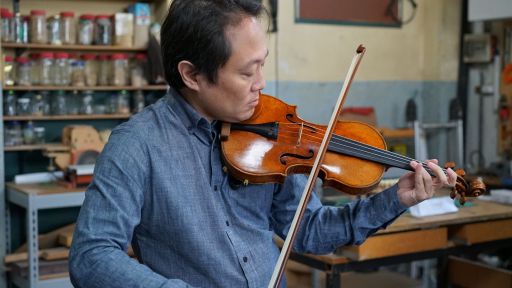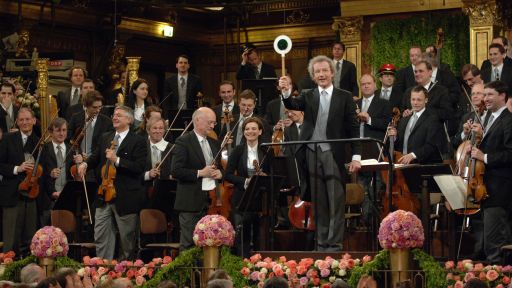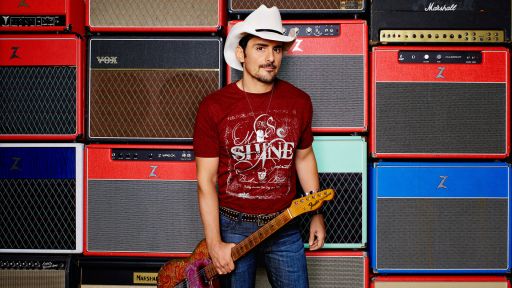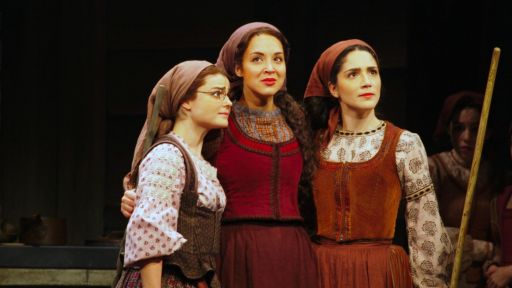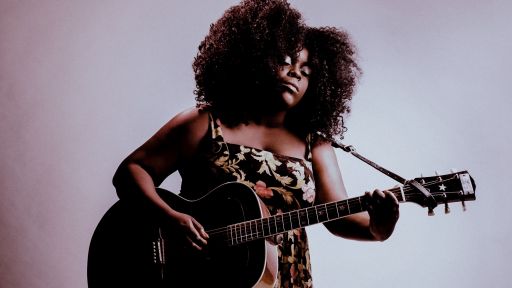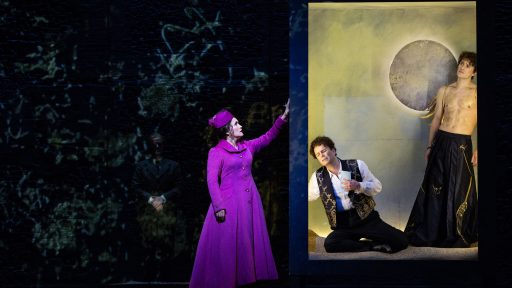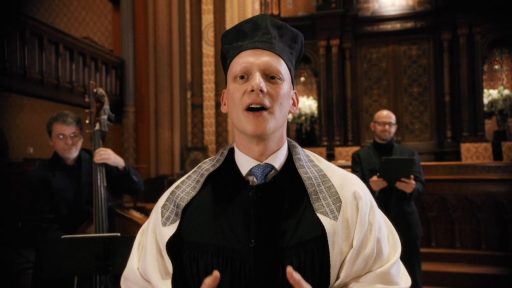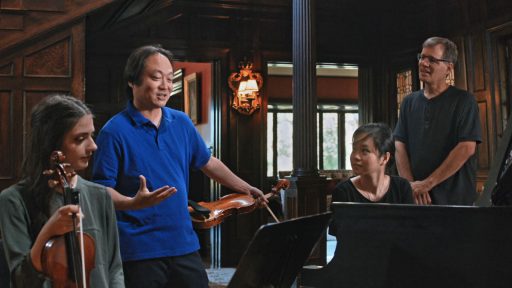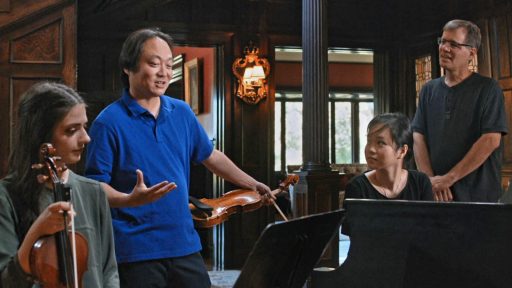Host Scott Yoo and pianist John Novacek discuss Copland’s career as a film composer. Copland was a firm believer in “less is more” in terms of scoring, an idea that can be heard in scores today. To demonstrate this, Novacek and the student orchestra at the Colorado College Music festival perform Copland’s “Grover’s Corner” from the film “Our Town.”
Features
Once Copland had found his American sound, he wanted to use it in new ways.
I went to talk to John again about that.
You know, by the early 30s, Copland began to think that modern music was hitting a certain impasse, and he very much wanted to reach a wide audience.
He wrote music for high school productions.
He wrote music for the radio.
He wrote theatrical pieces like Quiet City, and that caught the attention of some of the producers and directors in Hollywood. And he wrote a series of film scores in the 40s, almost each one of which earned an Academy Award nomination. One of them actually won.
So they had good taste.
They had good taste! [laughs] I was impressed. These are of course, very deserving film scores. But even before he started writing, Copland had very strong ideas about how to score a film. And he advocated writing in a more lean, strong style, and perhaps being a little more sparing about where you use the music.
More Copland. More Copland, right. His style.
So those films that he wrote in those times were highly influential, and created a whole school of film writing that influenced composers all the way to our time. Take Thomas Newman.
Newman wrote the score for the 1999 film American Beauty, the Sam Mendes film.
I love that movie.
It's a great movie. And it's a score that was profoundly influential, probably best known for some of the little rhythmic ideas that are very marimba drenched. We have... (playing) ♪♪♪ But there are many atmospheric, psychological moments that strike a Copland chord.
They're in that 'less is more' school.
♪♪♪ One could imagine not such a big leap from Copland's Billy the Kid.
♪♪♪ Very similar.
You know, these Copland scores would be just as fitting today in a film as they were then.
They are evergreen-fresh. One of my favorite scores, and one of the most beautiful, is a score he wrote for the 1940 version of Thornton Wilder's Our Town. Now, this was a perfect meeting of minds in a way, because Wilder's writing was very economical too. It's nostalgic, but not overly sentimental.
And Copland just caught this perfectly.
One of Copland's most moving miniatures, for me, is his depiction of Grover's Corner, New Hampshire, the fictional setting of Our Town (playing). ♪♪♪ ♪♪♪ At every festival, we assemble an all-student orchestra, to give them a chance to learn from each other.
♪♪♪ By writing for dance, theater, and now film, Copland's American sound reached ever wider audiences.
For establishing this new school of music, and supporting other composers within it, he began to be called the Dean of American music.
You May Also Like
